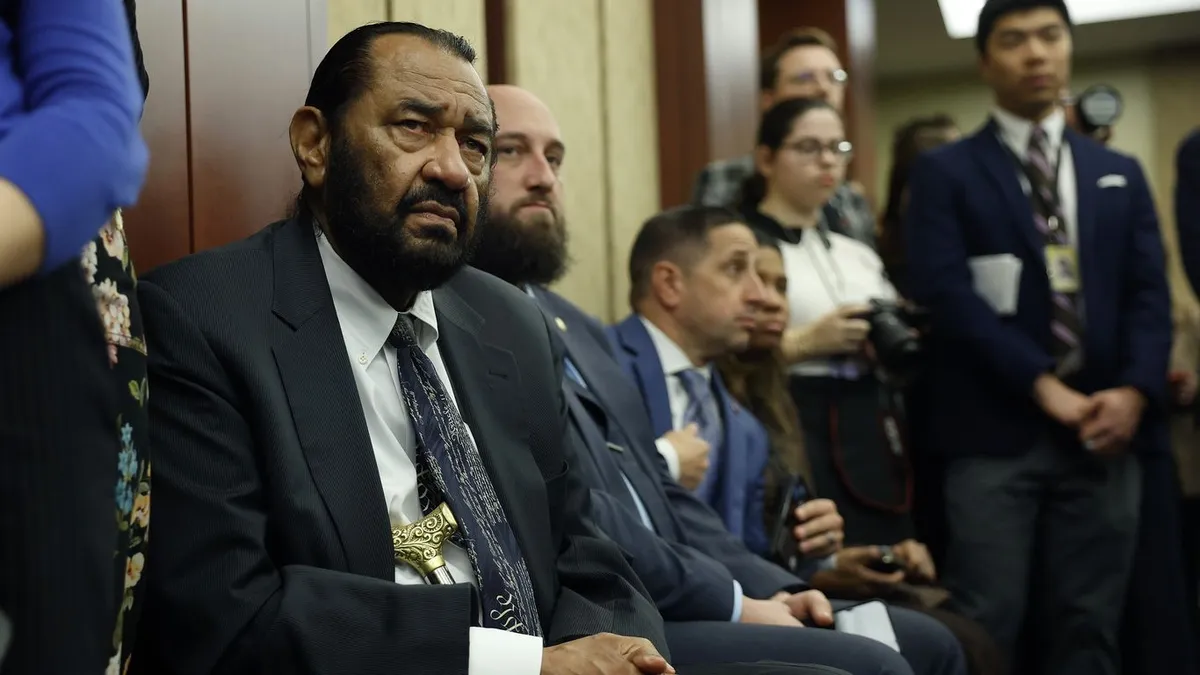
On Tuesday, House Democrats voiced their frustration regarding what they deemed a premature impeachment vote concerning President Trump’s recent military actions in Iran. This vote has reignited the ongoing debate surrounding impeachment, a topic that has overshadowed Democratic efforts since Trump’s return to office.
The significance of this vote lies in its timing and implications. For the past six months, Democrats have grappled with internal discord over impeachment, and Tuesday's vote compelled them to publicly take a stance. Ultimately, 128 Democrats joined forces with House Republicans to block Representative Al Green's (D-Texas) attempt to initiate a formal vote on impeachment. This coalition included a majority of the Democratic leadership, while only 79 Democrats, primarily progressives in secure districts, supported Green's initiative.
In private discussions, several House Democrats expressed their dissatisfaction with the vote. One Democrat, speaking anonymously, labeled the action as "a completely unserious and selfish move." Another echoed this sentiment, stating, "I think you heard it from leadership today; they're frustrated." A third member added that the general consensus is that the vote was unhelpful to the party's broader objectives.
Green's move for a sudden vote focused on President Trump's authorization of strikes against Iranian nuclear facilities over the previous weekend, which occurred without Congressional approval. This unilateral action has fueled tension between the administration and congressional Democrats, although only a select few, such as Rep. Alexandria Ocasio-Cortez (D-N.Y.), have publicly supported impeachment as a viable response.
Green's five-page resolution contended that Trump violated the doctrine of separation of powers by overstepping Congress's authority to declare war. However, many Democrats criticized the resolution's effectiveness, suggesting it lacked the legal strength necessary for such a significant action.
In an interview with Axios, Green expressed no regrets about pushing for the vote, stating, "It does not in any way cause me any degree of consternation to be criticized." He emphasized the importance of holding the president accountable, questioning, "Do we really want to give this president the power to take over 300 million people to war without consulting with Congress?"
Yet, discontent among Democrats was palpable. Many felt the vote forced them into a difficult position, caught between the demands of grassroots activists pushing for impeachment and the preferences of a more moderate voter base. One Democrat lamented, "There are a lot of other things we should be focused on right now."
Critics of Green's measure pointed out its weaknesses, comparing it unfavorably to previous impeachment articles nearly forced to a vote by Rep. Shri Thanedar (D-Mich.) in May. Representative Jared Moskowitz (D-Fla.) voiced concerns about the message this sends internationally, remarking, "What a message to China and Russia—after we take military action, we try to impeach the president." Another Democrat acknowledged the uncertainty surrounding the courts' potential support for such an impeachment, citing the contentious nature of constitutional war powers.
Despite the criticisms, some Democrats found it easy to align with Green's push for an impeachment vote. Rep. Emily Randall (D-Wash.) stated, "My constituents have been calling for articles of impeachment knowing we don't have the votes to pass them," emphasizing the importance of making their positions clear.
As the fallout continues, the division within the Democratic Party over impeachment remains a critical issue, highlighting the complexities of navigating both party unity and constituent expectations in a charged political climate.